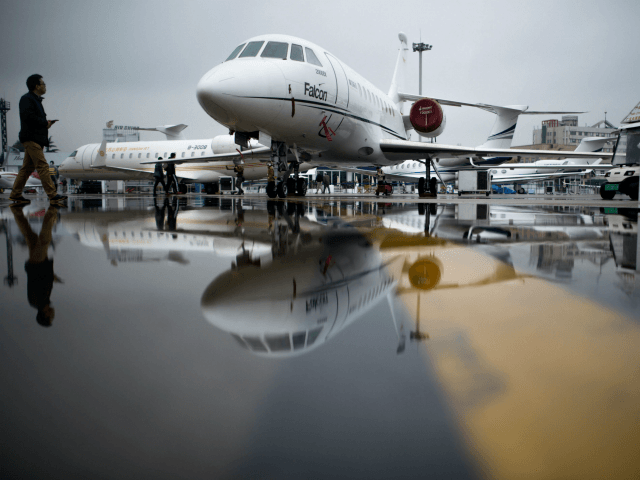Under the open borders policy maintained by the British government, over 1,800 private aircraft have arrived in the United Kingdom during the national coronavirus lockdown imposed on ordinary citizens.
The Home Office has revealed that between March 17th and April 14th, 1,812 private aircraft flights landed in the country, up from 545 less than one month ago. The figure includes privately owned aeroplanes, business jets, cargo aircraft, and foreign military flights. However, the government did not give a specific breakdown for each category of flight.
The Home Office minister, Baroness Williams of Trafford, also admitted per The Guardian: “There is no Public Health England requirement to record contact details for arriving or departing passengers for Covid-19 purposes”.
Though air traffic to the UK has dropped significantly during the coronavirus pandemic, it has been reported that an estimated 100,000 people have been arriving in the country through airports every week without any form of health screening.
The high number of private flights continuing to land in the United Kingdom mirrors the surge in the number of superyachts making berth in Britain over the course of the coronavirus pandemic. While most European nations enacted hard border lockdowns, leaving the yachts stranded and unable to refuel or get supplies in the Mediterranean, the United Kingdom remained open to all-comers, prompting the exodus to British ports.
The phenomenon of continued activity of private aviation and superyachts reflects the dichotomy noted by many, including Britain’s Brexit leader Nigel Farage, that while the British people remained under a police-mandated curfew, the borders remained paradoxically open, undermining the authority of the state by exposing the contradictions of their lockdown policies.
Months after coronavirus began to spread across Europe, Boris Johnson’s government is expected to implement a 14-day mandatory quarantine for all arrivals to the UK. However, a set date for the implementation of such a policy has not been revealed.
The government has claimed that until the transmission of the Wuhan virus was brought under control internally in the UK, any restrictions on international would have been ineffective at bringing the number of coronavirus cases down.
“Now that domestic transmission is decreasing, it is the right time to prepare new measures at the border to protect us from imported cases and the risk of a second wave of infections from those arriving here,” a government spokesman had told euronews last week.
“Throughout the outbreak, we have brought in the right measures at the right time based on scientific advice,” the spokesman added.
Critics have warned that the implementation of mandatory quarantines at a time when the British economy will be looking to rebound from the fallout caused by the national lockdown — as opposed to shutting down borders at the outset of the pandemic — will only serve to prolong the coronavirus recession.
The Immigration Services Union spokeswoman, Lucy Moreton, said that the government’s plans appear to be “all politics and no science”.
The chief executive of Heathrow Airport, John Holland-Kaye, argued that the government should adopt a risk-based approach, allowing travellers from countries with a low number of infections to enter into the country without quarantine.
“The quarantine cannot be in place for more than a relatively short period of time if we are going to get the economy moving again. There needs to be a plan for what comes next. We need the government to help develop [an] international standard so that traffic can continue to flow between low-risk countries,” Mr Holland-Kaye said in comments reported by The Telegraph.
“I think the approach to take is the risk-based approach, as we do with security where, if two countries are very low-risk free of transmission, there should be a free flow of passengers between those countries,” he suggested.
Follow Kurt on Twitter at @KurtZindulka

COMMENTS
Please let us know if you're having issues with commenting.